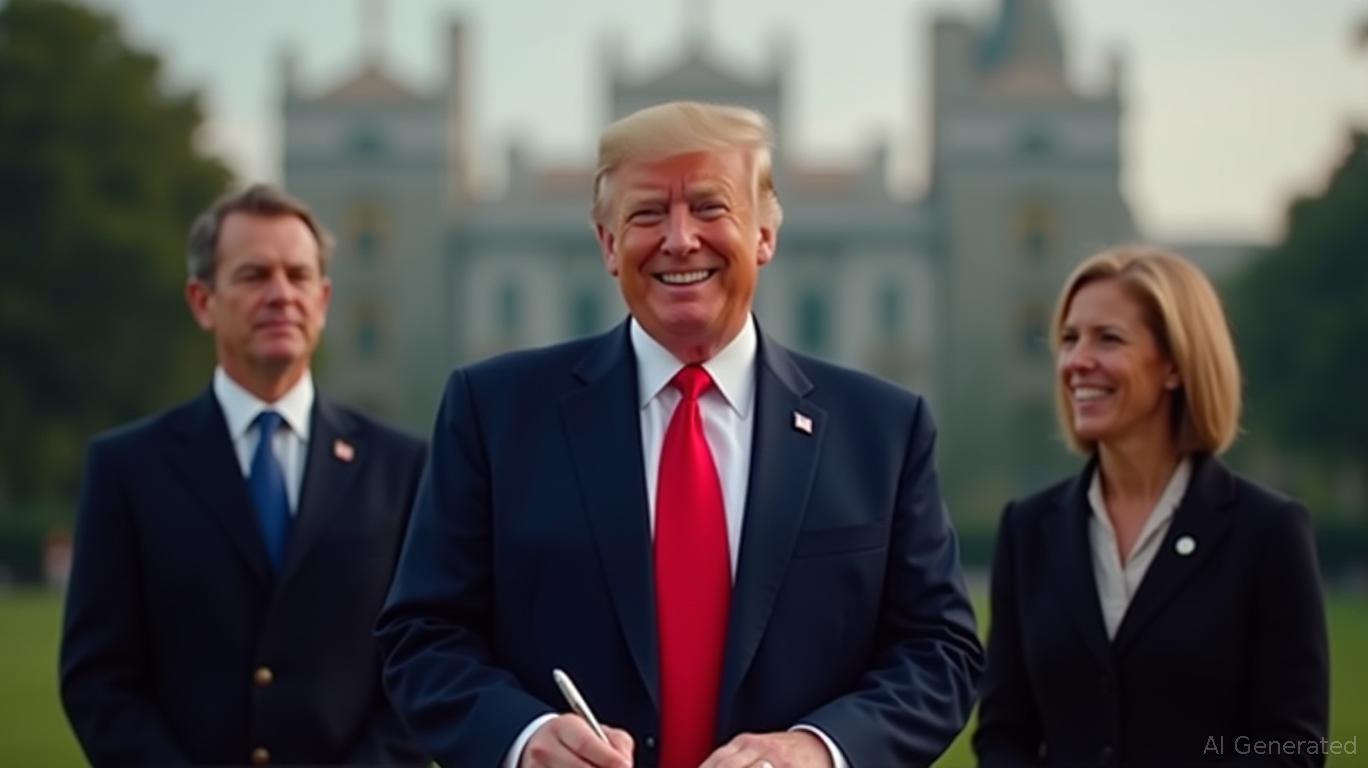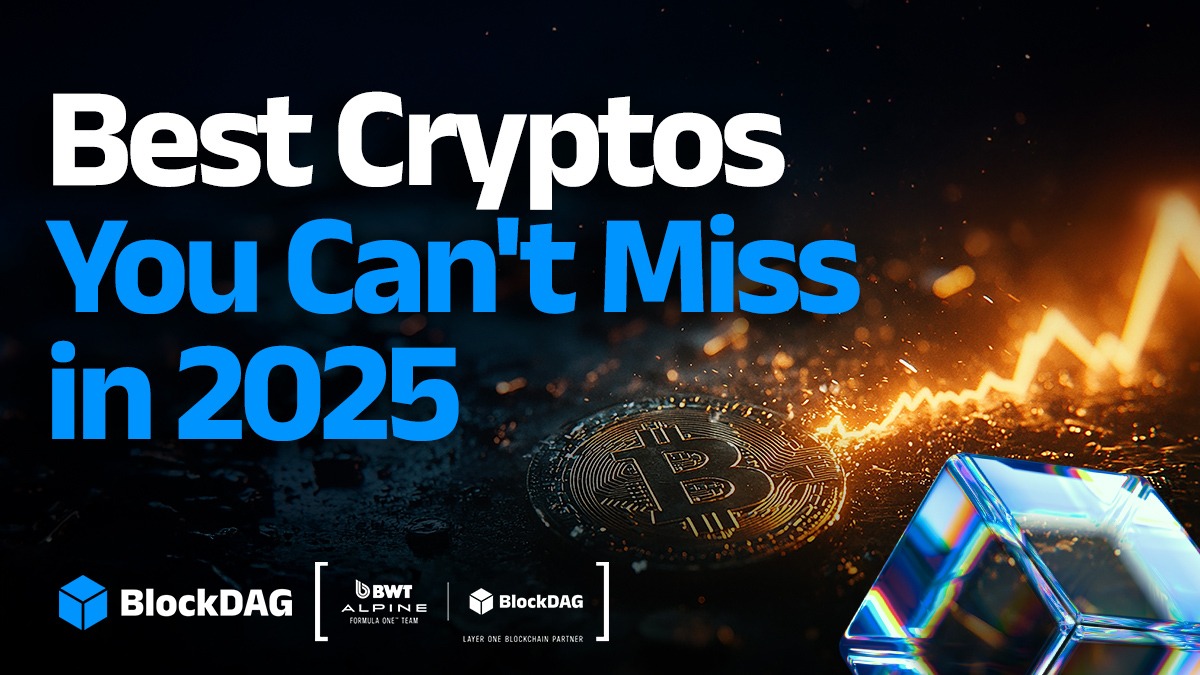Bitcoin News Update: Trump’s Selig Pick Seeks to Position U.S. as World Leader in Cryptocurrency
- Trump nominated SEC's Michael Selig to lead CFTC, advancing pro-crypto policies to position the U.S. as a global "crypto capital". - Selig, with expertise in digital asset enforcement, replaces withdrawn candidate Brian Quintenz amid industry lobbying by figures like the Winklevoss twins. - His confirmation could accelerate the CLARITY Act, clarifying SEC-CFTC jurisdiction for crypto, supported by $15B institutional investment in 2024. - A government shutdown complicates Senate approval, but lawmakers ai
President Donald

The CFTC, which is responsible for regulating derivatives and commodities—including
Selig’s nomination comes as a
The CFTC’s oversight of crypto spot markets has become more significant after joint statements with the SEC clarified that certain spot crypto activities are allowed under U.S. law. This has enabled listings on major platforms like the NYSE and Nasdaq, ending a period of regulatory uncertainty. Selig’s experience in aligning SEC and CFTC policies could further improve regulatory efficiency, especially as global crypto trading activity increases.
Nonetheless, the CFTC faces ongoing difficulties. The agency’s workforce has dropped to just 31 out of 543 employees during the shutdown, which could slow down new rules and enforcement. Former CFTC Chair Chris Giancarlo, also known as "Crypto Dad," cautioned that implementing the CLARITY Act would be "extremely challenging" without a permanent chair. Possible candidates for the remaining CFTC vacancies, such as Nathan Anonick and Paul Balzano, could add legislative expertise to complement Selig’s regulatory background.
The industry’s response has been varied. While many see Selig’s nomination as a positive step for crypto-friendly regulation, the Winklevoss twins’ successful campaign against Quintenz shows the sector’s increasing sway over regulatory appointments. At the same time, the CFTC’s recent approval of
As the Senate considers Selig’s nomination, stakeholders are closely watching how the CFTC will address overlapping regulatory responsibilities, enforce rules for decentralized finance (DeFi), and manage stablecoin oversight. With the crypto industry evolving and international competition heating up, Selig’s leadership could be crucial in developing a regulatory approach that encourages innovation while safeguarding investors.
Disclaimer: The content of this article solely reflects the author's opinion and does not represent the platform in any capacity. This article is not intended to serve as a reference for making investment decisions.
You may also like
Top Cryptos with Most Potential: BlockDAG, Dogecoin, Pepe, and Shiba Inu Gain Momentum

Solana News Today: Grayscale Connects Conventional Finance and Blockchain through Solana Trust
- Grayscale launches GSOL, the U.S.'s largest publicly traded Solana spot fund, offering direct SOL token exposure and staking integration. - Solana's network generates $425M monthly fees, supports 500+ dApps, and maintains 1,000+ active developers, reinforcing institutional confidence. - Regulatory progress includes Hong Kong's Solana ETF approval and U.S. applications, while SOC certifications enhance staking security for risk-averse investors. - Despite recent price dips, Grayscale highlights Solana's u

Thailand Strikes a Balance Between Crypto Regulation and Tourist-Focused Digital Baht Trial
- Thai SEC and CCIB raided a Worldcoin iris scanning site in Bangkok, arresting suspects for operating an unlicensed crypto exchange under the 2018 Emergency Decree. - Worldcoin’s biometric data collection for WLD tokens faces scrutiny in Thailand and globally, with regulators citing unlicensed services and privacy violations in Kenya, Germany, and France. - Authorities emphasized the crackdown aims to prevent fraud and money laundering, while Worldcoin introduced privacy upgrades like SMPC encryption and

Ethereum Updates: SHIB's Massive Token Burns Fail to Address Utility Gap
- Shiba Inu (SHIB) token's 26,493% daily burn rate spike fails to resolve its core issue: lack of tangible utility despite increased scarcity. - Shibarium's stagnant Total Value Locked (TVL) highlights structural flaws, as platform upgrades like BONE Plasma Bridge relaunch show no meaningful adoption growth. - SHIB's price volatility (23% monthly decline) contrasts with Ethereum's institutional adoption, exposing its inability to capitalize on network growth due to limited functionality. - Analysts stress
